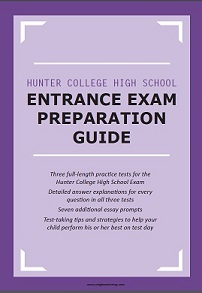College Process Checklist:Junior and Senior Year
/Once you finish tenth grade, the focus of your next two years of high school is college admissions. As the capstone of your academic career, your college years will fun, exciting, and full of new opportunities to enrich yourself academically. Consequently, you should begin preparing for this time of change by the time you begin your junior year of high school. There are many components to the college essay and a complete application; the more you plan ahead, the less stressful the entire process will be!
College Process Checklist:
-take the SAT, ACT, or both (required by nearly every college)
-take at least two SAT II subject tests (required by many colleges)
-take AP tests if you have covered the course material in high school (optional, may give you college credit)
-create a college list of 10-20 possible schools
-ask for letters of recommendation from trusted adults who know you well (helpful as additions to college applications)
-fill out the Common Application (accepted by many colleges)
-fill out individual colleges' applications and supplements
-fill out the CSS profile and the FAFSA (if applying for financial aid)
Junior Year
If you have the time to study, you will have a much easier senior year if you can take the SAT/ACT/SAT II's in eleventh grade. At the very least, this is a good year to attempt the standardized tests. You have no obligation to report your scores to colleges, which means that you can have as many "practice" tests as you want. Once you see the results, identify areas you need to improve before retaking any tests you are unsatisfied with.
Work hard to keep your grades stellar, as your transcript is a crucial part of your college application. Taking challenging courses and maintaining high grades is difficult, but try your best.
Start to think about your areas of interest: if you feel drawn to a highly specific field, you may want to look at colleges that excel in that one area. If, like most students, you still are not sure where your professional career will take you, plan to apply to good, well-rounded schools.
The Summer after Junior Year
This is the time to visit all the schools that you can. Even if you haven't decided on where to apply, this is a good time to visit a generic large school and small school, just to get a feel for which type you like more. Knowing that you want a large research university or small liberal arts school will help narrow down your options. Try to begin forming the list of schools that you will apply to: anywhere from 10-20 schools is reasonable, with some "safety" schools where you have a high chance of being accepted, and some "reach" schools where admission is a long shot. Fill the rest of your list with schools that you like and that you feel are likely to accept you.
If you signed up for the SAT/ACT/SAT II's in the fall, you may want to study over the summer. Since you will not have regular school work taking up your time, the summer is a perfect opportunity to identify areas you should improve before your testing dates.
You may want to begin filling out the Common Application, which most colleges accept. There are several essay portions which you can complete at your leisure, and these essays play a key role in showing college admissions workers what you are like as a person.
Senior Year
If you still have standardized tests to take, get them done! Ask trusted teachers or advisors for recommendation letters, which will help round out your college applications. Generally, your school's college counselor will always write a recommendation, but you may have other adults who know you better.
Now it's time to actually apply to colleges! Finish your Common App and supplements, if any of your colleges require them. Consider applying to a few schools early action (EA), which is non-binding. This means that you will find out your admission status early in the year (usually January), but you have no obligation to attend any school that accepts you. Applying EA takes some pressure off, because you will know early on that you have been accepted by some schools. Another choice you can make is applying early decision (ED). This is binding, which means that you find out your admission status early, but if you are accepted, you are contractually obligated to attend that school. Unless you have a clear top college, applying ED is not a good choice.
Use Thanksgiving break to make any final changes you have to your applications, because almost all deadlines are at the end of December. You don't want to be stuck by a computer during winter break, trying to finish filling out forms!
Once you've submitted all your applications and checked off everything on your college process checklist, try to relax! Write thank-you notes to anyone who gave you a recommendation. The only step you have left is reading your acceptance letters and choosing a school. You've nearly made it through the college process! Spend the rest of your last semester enjoying high school, because it's almost over! Make memories with your friends, dress up for prom, and build lasting relationships with your teachers. Get excited about your next four years!

